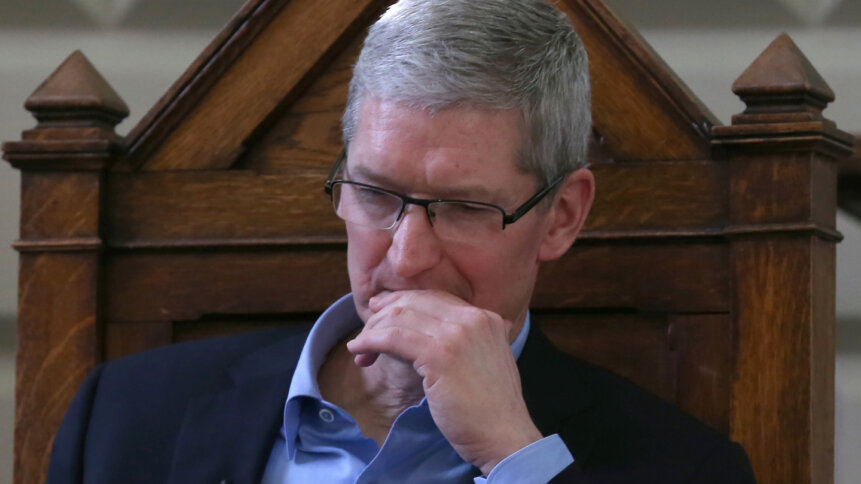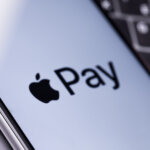Apple “infringed workers’ rights” over unionization

Just weeks ago, Apple made headlines by becoming the first of the tech giants to engage with a union, in this case, the union formed by staff at the Apple store in Towson, Maryland. Now, the National Labor Relations Board (NLRB) has ruled that the company “infringed workers’ rights” on the road to that first instance of unionization.
The NLRB was investigating allegations from staff dating back to 2021 that the company had tried to impose rules that stopped staff discussing their wages to establish levels of remuneration, reward and conditions for each role and level of service.
An email from the boss.
Those allegations were found to have merit after Ashley Gjovik, one of the staff who brought the initial complaint, cited an email from no-one less than Tim Cook, Apple CEO, intending to “crack down on information leaks at the company.”
Cracking down on that particular information though would “reasonably tend to interfere with, restrain, or coerce employees” who attempt to assert their labor rights, according to NLRB spokesperson, Katla Blado, who explained the findings to CNN.
The company was also accused of “suppressive activity that has enabled abuse and harassment of [union] organizers.”
It’s worth noting that not all of the NLRB’s deliberations have yet been made public, but on those that have, Gjovik said she would accept no settlement from Apple. Her intention is to make the company accept that it broke the National Labor Relations Act, and to make it do that, there can be no question of being “paid off” – which has a tendency not to censure the company who pays (see also, the behavior of companies like Meta, Twitter, Amazon, and Google when they simply pay massive fines in Europe for breaking the EU’s GDPR data privacy rules, and then go about their day as if, for instance, $400 million was simply the price of doing business – which usually, it is).
Gjovik told CNN “[Apple] don’t just have a feeling of impunity — they actually have it with these policies.” She was referring to a raft of confidentiality clauses Apple writes into its contracts, which on the one hand, the company would undoubtedly claim are necessary to maintain its competitive advantage, but on the other hand – as the NLRB has found – can be used to isolate workers in the relative dark and prevent them from exercising their right to organize.
Having said that, as part of the investigation into the claims of Gjovick and her fellow complainant, an NLRB regional office had “found merit to a charge alleging that statements and conduct by Apple — including high-level executives — also violated the National Labor Relations Act.”
Previous cases to take into account.
This is by no means Apple’s first run in with the NLRB. It has previously faced allegations not only that it unfairly interrogated its own staff over their likely support for forming a union, but also played petty on the placement of pro-union flyers in a break room, so as to actively discourage the practice and potentially identify those who were pro-union.
In America.
In an Apple store. In New York City, of all places.
And in the 21st century.
Apple filed a counter to those charges, but the new NLRB findings may force the company to change at least some of its ways as regards unionization. No-one is holding their breath, because Apple is a company in the same economic league as the other giants we mentioned, like Meta, Twitter, Google, and Amazon, which have traditionally acted like the union-busting mega-corporations of the 1950s, while pouring billions of dollars into a PR image that makes them out to be pro-people friendly businesses of the new millennium.
And while the NLRB doesn’t, for instance, even have the power to lay an EU-style fine on companies that break labor laws and violate their workers’ rights to organize for the right to negotiate on pay, conditions, and – not to put too fine a point on it – the redress of grievances, it can at least theoretically force companies to change its minimum allowable practices.
But there’s a sense of skepticism attached to those NLRB powers, which anyone who’s ever been bullied at school and been advised to tell the teacher will understand.
No bully was ever turned into a non-bully by a higher authority telling them off. Similarly, if and when Apple decides to genuinely allow a judgment other than its own into the equation of how best to treat its staff (such as, for instance, the judgment of a union), it will do so because it suits the productivity of Apple, not because it’s either frightened or respectful of the NLRB.
A turning of the tide?
While the company has yet to respond to media queries about the NLRB findings, the question is whether those findings will have any impact on the ongoing negotiations between Apple and its first union. Again, no observer genuinely expects that it will.
That said, just last week, a federal judge found that Amazon had broken labor laws in its anti-union activity prior to votes on unionization at two locations last year. Judge Benjamin W Green ruled that Amazon had illegally threatened to withhold wage and benefit increases for anyone who voted to unionize, as well as illegally removing posts on a message board inviting Amazon workers to sign a petition being circulated by the Amazon Labor Union.
So optimists would argue that the tech giants are coming up against the might of the law, and that the law is telling them to shape up their act with regard to their historic labor relations.
As of two weeks ago, Amazon was still fighting the formation of its first union, and refusing to acknowledge the union’s legitimacy, arguing that it was somehow unfair and against the spirit of the majority of its workers’ wishes – which is an example of why optimism about the tech giants and their attitude towards unionization may be unfortunately poorly-founded in fact.










